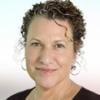
Norm Thagard knows a thing or two about being cooped up. As the first American to live on the Russian Mir space station, Thagard spent four months isolated with two cosmonauts who had been told to not let him help with their experiments and chores. With the arrival of the Spektr science lab delayed, time passed slowly. His advice for the quarantined: Have a project. Thagard spoke to Aviation Week Space Editor Irene Klotz from his home in northern Florida, where he is sheltering, along with his wife, during the COVID-19 pandemic.
When you look back on your days on Mir, what stands out as most important? The thing that impressed me the most was that I was underworked. A lot of the equipment I was going to use was coming up on the Spektr, but the module didn’t come up until a month or so before the end of the flight. So a lot of the time I just was sitting around twiddling my thumbs, and when you’re in a spacecraft with not much to do and only two companions that’s not what you want. It bothered me a lot.
When I came back I told NASA that for flights above six months, people had to be kept pretty busy with meaningful work, otherwise psychological things would start to get to you.
Is there anything else besides keeping busy that would be helpful for people who are isolating in their homes because of the coronavirus? As long as you’re busy and you really believe in what you are doing, that’s probably sufficient. As my wife would readily admit, I’m an obsessive-compulsive person. I like to keep busy and make things just so.
One thing I remember from your Mir flight is when your commander’s mother passed away unexpectedly, and how you dealt with that. The problem for me was I knew my crewmates well and I thought we were friends, but culturally I wasn’t sure about how one would approach a friend whose mother had just died. I could never know whether or not something I might think [to say], which would be standard for an American to say to such a friend, might be culturally offensive to a Russian, so I held back.
In hindsight, what do you think were the most important results out of the shuttle-Mir program? We learned we could work together, although there were obviously differences. In my case, I thought it worked rather well. I know the Russians were having terrible economic problems at the time, but they still somehow seemed to do what they needed to do. And in spite of those problems, I thought that they did pretty well by way of their treatment of me and my wife and youngest son, who were over there with me.
What has been your coronavirus quarantine project? I had been kind of dawdling around trying to write an autobiographical book . . . but progress was really slow. Now, I’m only a few pages from the end of the entire air-to-ground transcription from my first mission, STS-7 in June 1983. Then I’ll do something about the post-flight activities and that’ll be the end of the book.





